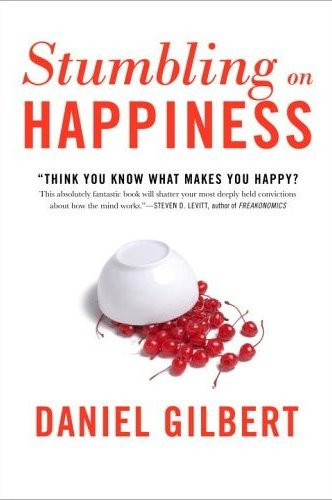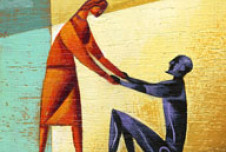Daniel Gilbert’s engaging and surprising new book, Stumbling on Happiness, won’t teach you how to become happy, but it will convince you of how difficult that goal is to achieve.
Gilbert, a social psychologist at Harvard, specializes in “affective forecasting,” which means he studies how people remember their feelings during past events and predict their reactions to future ones. Unfortunately, as Gilbert shows in study after study, our brains are “talented forgers,” which take out and fill in details essential to accurate judgments: We use our current emotions to (mis)estimate our past feelings, we tend to pay extra attention to information that corroborates our opinions, and we are much more sensitive to changes in our environment than to the status quo.

In addition, when we imagine something we would like to experience in the future, we tend to gloss over the fine details and focus on a more abstract, general idea of that experience. This would be fine if we realized that we left out so much detail and adjusted our expectations accordingly, but we don’t. So when we decide to go to our high school reunion, for example, we imagine how meaningful it will be to see old friends, but we fail to anticipate the specifics. When that reunion rolls around, we will likely be faced with uncomfortable silences and wonder why we decided to go in the first place.
Given our failures as forecasters, Gilbert explains, the things we expect to make us happy may leave us disappointed—and supposed disappointments may actually bring us happiness. Gilbert quotes a man who was wrongfully imprisoned for 37 years as saying his ordeal was “a glorious experience”; another man who was paralyzed from the neck down said that before his accident, he “didn’t appreciate others nearly as much as I do now.” What’s going on here? According to Gilbert, unhappy outcomes make us adjust our expectations for life and reappraise our situation, so that we find it more pleasurable. “The moral of the story?” Gilbert glibly writes, “If you want to be happy, healthy, wealthy, and wise, then skip the vitamin pills and plastic surgeries and try public humiliation, unjust incarceration, or quadriplegia instead.”
Gilbert’s book does offer some hope for happiness that doesn’t involve paralysis or a prison sentence. His final point is that, odd as it may sound, one of the best ways to predict happiness during a future event is to talk with people who have experienced that same event already. Although we imagine ourselves to be so unique as to be unable to use random people’s experience as a guide to personal fulfillment, Gilbert shows how this is actually a much better predictor of happiness than our own wishful thinking.




Comments